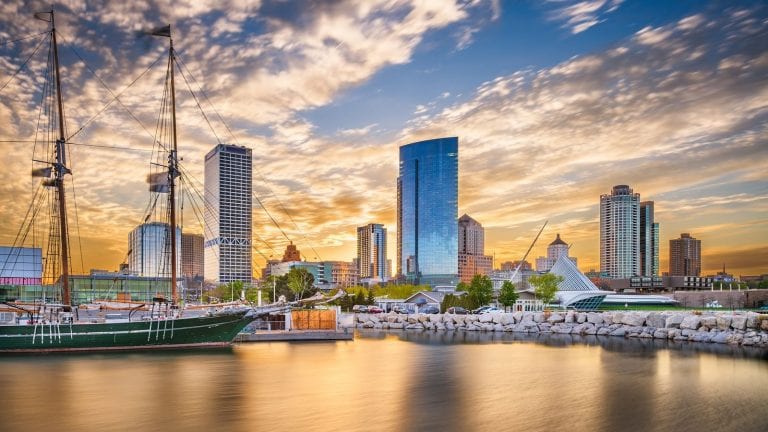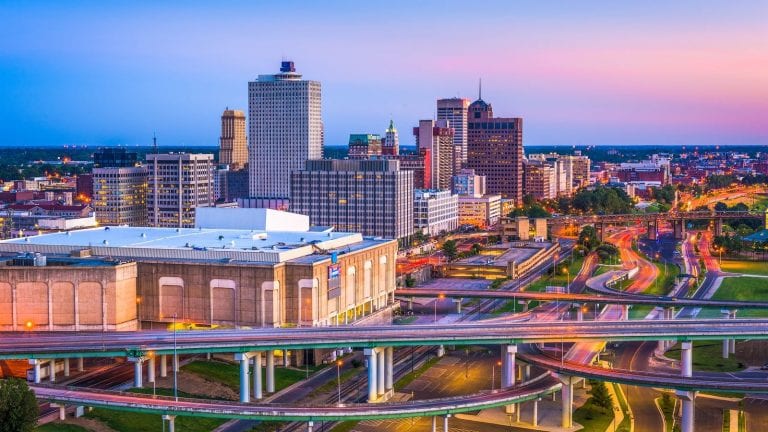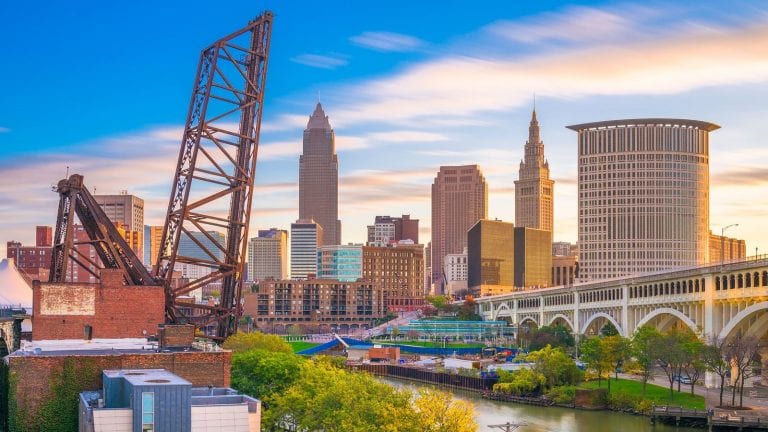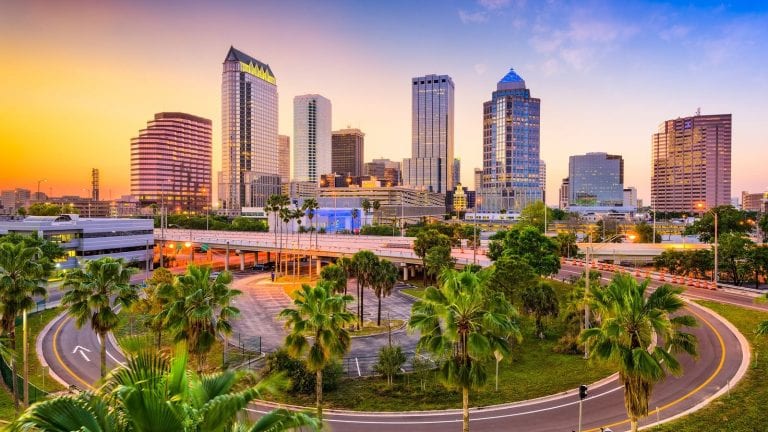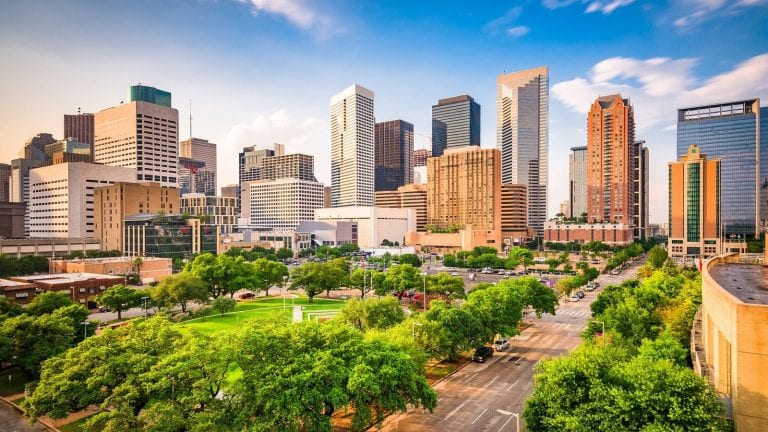To start a successful and trouble-free short term rental business, you need to focus on the 20 cities with no Airbnb regulation.
Since Airbnb’s launch in 2008, renting out vacation homes to short term guests has become a desirable way to earn income for many property investors. Airbnb rentals usually come with the potential of generating a better return on investment than long-term rentals. This, of course, depends on the location of the property. For this reason, investors are always searching for the best cities for Airbnb investments.
Table of Contents
- Airbnb Legal Issues to Be Aware of
- Cities With No Airbnb Regulations
- Finding Profitable Opportunities in the Most Short Term Rental Friendly Cities
Unfortunately, finding the best locations to invest in Airbnb is harder than one might think. Some US cities, such as New York City, seem like an obvious choice because of the large number of visitors that they attract. However, they face various Airbnb legal issues and sometimes enforce strict regulations that make it impossible to run an Airbnb business.
Recently, new restrictions have been popping up in city after city to keep Airbnb’s rapid growth in check. These rules vary from one place to another. Plus, Airbnb, as a marketplace, doesn’t offer legal advice to help investors understand where the strategy is legal and where it’s not. As a result, beginners are frequently at a loss.
This article aims to help investors struggling to make sense of the multiple vacation rental regulations across the US. To be most effective, we’ve put together a list of the 20 US cities with the most host-friendly rules.
Airbnb Legal Issues to Be Aware of
Before you buy a vacation rental property, you need to study the local short term rental rules carefully. However, there are so many different regulations that you need to consider.
- Non-Owner Occupied Rentals: In many US cities, only property owners can rent out to guests while being present on site. For example, Los Angeles allows only owner-occupied residences to be rented on Airbnb. If you hope to make money from vacation rentals, don’t invest in Airbnb Los Angeles, as according to local laws, non-owner-occupied rentals are not allowed.
- Zoning Rules: Some cities allow Airbnb rentals only in certain neighborhoods, like commercial zones but not residential ones. Others may limit the number of short term rentals in certain areas or even the distance between rentals on the same block.
- Extreme Permits: In most cities, Airbnb hosts have to obtain a business license or a special permit before renting out. The issue is that some cities have extreme registration requirements, making the process very complicated and expensive.
- Building and Housing Standards: Most local governments have ordinances specifying minimum construction, design, and maintenance standards for buildings. These include rules on habitability, health, and safety. Some cities also require regular property inspections to ensure rentals meet the minimum standards.
- Taxes: Airbnb taxes are a concern to any host. Paying taxes is part of doing business, but certain cities require hosts to collect numerous taxes at high rates for each overnight stay to pay to the city or county. This will impact your Airbnb cap rate.
To get quick access to the Airbnb regulations pertinent to your city of choice, check out the Mashvisor short term rental regulations page.
Cities With No Airbnb Regulations
So where is Airbnb legal for real estate investors in the US housing market?
Below is a list of the 20 most Airbnb-friendly cities where you can avoid major legal issues with the local authorities. However, you should keep in mind that while these cities don’t prevent the short term rental strategy, they might still have some specific requirements for Airbnb real estate investors.
Thus, before searching for an Airbnb for sale in any of these markets, you should study the specific Airbnb regulations to ensure you can comply with them. The Mashvisor short term rental regulations page referenced above is a great starting point. There you’ll find a summary of the primary laws and links to more detailed information.
Furthermore, the fact that these cities don’t have restrictive Airbnb regulations doesn’t mean they are the best short term rental markets. To help you decide if a particular location is worth it for Airbnb hosts, we’ve provided vacation rental data for each. This data has been collected and analyzed by the Mashvisor Data Team and reflects Airbnb performance in May 2023.
1) Milwaukee, WI
- Median Property Price: $278,078
- Average Price per Square Foot: $163
- Days on Market: 43
- Number of Airbnb Listings: 1,242
- Monthly Airbnb Rental Income: $1,980
- Airbnb Cash on Cash Return: 3.44%
- Airbnb Cap Rate: 3.54%
- Airbnb Daily Rate: $156
- Airbnb Occupancy Rate: 48%
- Walk Score: 49
Wisconsin prohibits cities, towns, and villages from enforcing ordinances that ban renting out properties to short term guests. They can, however, implement local room taxes on owners.
To become an Airbnb host in the State of Wisconsin, you need to obtain a tourist rooming house license from the Wisconsin DATCP and a license from the county, city, town, or village (if required).
Why Airbnb Milwaukee? This city ranked #6 as one of the most trending summer domestic destinations by search. For years, it’s been witnessing strong growth in bookings, meaning you can definitely expect a good Airbnb occupancy rate and ROI there.
2) Gatlinburg, TN
- Median Property Price: $812,090
- Average Price per Square Foot: $464
- Days on Market: 151
- Number of Airbnb Listings: 430
- Monthly Airbnb Rental Income: $4,612
- Airbnb Cash on Cash Return: 4.09%
- Airbnb Cap Rate: 4.13%
- Airbnb Daily Rate: $280
- Airbnb Occupancy Rate: 57%
- Walk Score: 62
Known as a gateway to the Great Smoky Mountains National Park, Gatlinburg attracts a lot of tourist traffic, making it one of the best places for buying a vacation home.
When it comes to Airbnb rules and regulations, you can rest assured that it’s an Airbnb-friendly city. Nevertheless, Airbnb hosts in the Gatlinburg real estate market are required to obtain a Sevier County business license and a City Tourist Residency Permit. They also need to collect and remit lodging, sales, and gross receipts taxes.
There are zoning codes and regulations for short term rentals that you need to comply with, so make sure to check them out.
3) Columbus, OH
- Median Property Price: $379,019
- Average Price per Square Foot: $266
- Days on Market: 53
- Number of Airbnb Listings: 2,176
- Monthly Airbnb Rental Income: $2,296
- Airbnb Cash on Cash Return: 4.15%
- Airbnb Cap Rate: 4.25%
- Airbnb Daily Rate: $162
- Airbnb Occupancy Rate: 47%
- Walk Score: 44
Ohio is one of the states with the least number of Airbnb legal issues in the US, and Columbus is the #1 Airbnb market in the state. The city updated Airbnb regulations in 2018, which are pretty lenient towards non-owner-occupied rentals.
Airbnb Columbus rules and regulations require hosts to get a permit, maintain insurance on their homes, and pay taxes. However, there’s no cap on the number of days in a year investors can rent their properties out on Airbnb.
Plus, our Airbnb data shows Columbus rental properties are affordable and profitable. Buying one to rent out on Airbnb is a smart investment.
4) Indianapolis, IN
- Median Property Price: $294,821
- Average Price per Square Foot: $185
- Days on Market: 74
- Number of Airbnb Listings: 1,851
- Monthly Airbnb Rental Income: $2,103
- Airbnb Cash on Cash Return: 4.21%
- Airbnb Cap Rate: 4.32%
- Airbnb Daily Rate: $167
- Airbnb Occupancy Rate: 46%
- Walk Score: 35
A 2018 Indiana state law prohibits localities from banning Airbnb rentals. As for the Indianapolis housing market, it has been very welcoming and supportive of Airbnb and has seen explosive growth. Indianapolis does, however, require real estate investors to get a short term rental permit and collect taxes, similar to other cities with no Airbnb regulation problems.
Importantly, as a result of below-average home values and strong Airbnb income, Indianapolis is one of the most profitable markets for this investment strategy. A return on investment above 4% is considered excellent as a city average.
5) Memphis, TN
- Median Property Price: $320,092
- Average Price per Square Foot: $3,943
- Days on Market: 58
- Number of Airbnb Listings: 952
- Monthly Airbnb Rental Income: $2,574
- Airbnb Cash on Cash Return: 5.08%
- Airbnb Cap Rate: 5.18%
- Airbnb Daily Rate: $152
- Airbnb Occupancy Rate: 52%
- Walk Score: 32
In 2018, the Tennessee General Assembly passed a bill restricting how far cities can go in banning non-owner-occupied rentals. Memphis has no bans, allowing real estate investors to operate in the city without facing any legal issues with Airbnb.
However, the city does have a couple of laws to keep in mind. For example, short-term Memphis investment property must apply for a permit. In addition, rentals need to have approved smoke alarms and carbon monoxide detectors installed, hosts and guests must comply with the noise control restrictions, and there is a 3.5% privilege tax.
6) El Paso, TX
- Median Property Price: $321,866
- Average Price per Square Foot: $167
- Days on Market: 110
- Number of Airbnb Listings: 1,386
- Monthly Airbnb Rental Income: $1,796
- Airbnb Cash on Cash Return: 1.43%
- Airbnb Cap Rate: 1.45%
- Airbnb Daily Rate: $91
- Airbnb Occupancy Rate: 35%
- Walk Score: 45
There are a few Texas cities with no Airbnb regulations. From these cities, buying an Airbnb investment property is really worth it in El Paso. The city is within an international metropolitan area. The vacation rental market in El Paso has been stable for years, offering affordable homes for sale to buy and rent out on Airbnb without fear of penalties.
That, along with nonexistent Airbnb regulations, makes El Paso an ideal city to invest in short term rentals for sale.
7) San Antonio, TX
- Median Property Price: $370,248
- Average Price per Square Foot: $1,184
- Days on Market: 70
- Number of Airbnb Listings: 4,548
- Monthly Airbnb Rental Income: $2,134
- Airbnb Cash on Cash Return: 2.05%
- Airbnb Cap Rate: 2.09%
- Airbnb Daily Rate: $154
- Airbnb Occupancy Rate: 42%
- Walk Score: 39
The second city in Texas to consider for Airbnb investment is San Antonio. It is one of the few major US cities that allow Airbnb with little complications and restrictions.
Still, there are some important rules for an Airbnb host in the San Antonio real estate market to remember. These include registering with the city council and renewing the license every three years.
There’s a limit on the number of vacation rentals that can exist in residential zones though they are permitted in all residential areas. Moreover, hosts are responsible for collecting occupancy tax from guests.
8) Philadelphia, PA
- Median Property Price: $425,059
- Average Price per Square Foot: $538
- Days on Market: 117
- Number of Airbnb Listings: 4,268
- Monthly Airbnb Rental Income: $2,056
- Airbnb Cash on Cash Return: 3.30%
- Airbnb Cap Rate: 3.38%
- Airbnb Daily Rate: $153
- Airbnb Occupancy Rate: 49%
- Walk Score: 59
The vibrant tourism sector supported by the many historical attractions makes Airbnb Philadelphia one of the hottest short term rental businesses in the country.
Recently, local authorities introduced new licensing requirements and zoning laws, but non-owner-occupied short term rentals remain legal and viable. The reason for slightly tightening Airbnb regulations is the hosting of the FIFA World Cup 2026 when the city expects an influx of visitors.
Airbnb business owners also have to pay the city’s hotel tax and install smoke and carbon monoxide alarms on their properties.
9) Kissimmee, FL
- Median Property Price: $430,917
- Average Price per Square Foot: $239
- Days on Market: 161
- Number of Airbnb Listings: 3,949
- Monthly Airbnb Rental Income: $2,081
- Airbnb Cash on Cash Return: 1.93%
- Airbnb Cap Rate: 1.95%
- Airbnb Daily Rate: $181
- Airbnb Occupancy Rate: 60%
- Walk Score: 65
Kissimmee bills itself as “The Vacation Home Capital of the World,” so it’s no surprise why buying an Airbnb Kissimmee investment property is a smart decision. Important Airbnb laws to remember are that you have to obtain a business license, and the rental property has to be in a short term rental overlay district.
Still, since vacation homes are popular in Kissimmee, there are plenty of exceptions. For example, you can get a conditional use permit if your property is not in an area zoned for short term residential use.
It’s important that, unlike most other US cities that define a short term rental as leasing for less than 30 consecutive days, the limit in Kissimmee is six months. Certain local authorities use the 90 days benchmark.
10) Cleveland, OH
- Median Property Price: $476,468
- Average Price per Square Foot: $232
- Days on Market: 61
- Number of Airbnb Listings: 133
- Monthly Airbnb Rental Income: $2,791
- Airbnb Cash on Cash Return: 3.59%
- Airbnb Cap Rate: 3.65%
- Airbnb Daily Rate: $239
- Airbnb Occupancy Rate: 43%
- Walk Score: 56
Cleveland has regulated Airbnb rentals effectively, which has led to a few Airbnb legal issues.
An Airbnb host in Cleveland needs a business license to operate. They also need to register with the Department of Building and Housing each year. The interior and exterior of properties need to be inspected. Finally, real estate investors must pay a 3% transient occupancy tax when Airbnb guests stay for fewer than 30 consecutive days.
These rules, along with others regarding zoning and housing standards, have regulated short term rentals in the Cleveland real estate market. Airbnb investors who comply with these rules and regulations can make money in the city.
11) Phoenix, AZ
- Median Property Price: $658,900
- Average Price per Square Foot: $339
- Days on Market: 16
- Number of Airbnb Listings: 1,984
- Monthly Airbnb Rental Income: $2,498
- Airbnb Cash on Cash Return: 1.97%
- Airbnb Cap Rate: 1.99%
- Airbnb Daily Rate: $185
- Airbnb Occupancy Rate: 44%
- Walk Score: 35
Arizona removed all restrictions on short term rental properties in 2016, making it one of the states with the least number of Airbnb regulation issues. There are a few Airbnb-friendly cities in Arizona where vacation rentals for sale also have a good ROI potential.
The first one is none other than the state’s capital: Phoenix. Renting out Phoenix short term rentals is legal for non-owner occupied properties in all neighborhoods. Airbnb hosts, however, have to hold a valid transaction privilege tax (TPT) license and pay a state transaction privilege tax, a county excise tax, and a local transient occupancy tax.
12) Tempe, AZ
- Median Property Price: $524,457
- Average Price per Square Foot: $331
- Days on Market: 62
- Number of Airbnb Listings: 2,186
- Monthly Airbnb Rental Income: $2,564
- Airbnb Cash on Cash Return: 2.31%
- Airbnb Cap Rate: 2.34%
- Airbnb Daily Rate: $185
- Airbnb Occupancy Rate: 47%
- Walk Score: 53
Airbnb Tempe is another lucrative real estate investment in the US due to the city’s rapid growth in tourism. There are several Airbnb regulations real estate investors need to be aware of, some of which have been recently introduced. Hosts need to hold a business license and run background checks on guests.
Vacation rental properties in the Tempe real estate market are subject to a State Privilege Tax (5.5%), a City Privilege Tax (1.8%), and a City Transient Lodging Tax (5%). Nevertheless, Tempe remains one of the most short term rental friendly cities across the US.
13) Mesa, AZ
- Median Property Price: $508,346
- Average Price per Square Foot: $276
- Days on Market: 36
- Number of Airbnb Listings: 1,593
- Monthly Airbnb Rental Income: $2,743
- Airbnb Cash on Cash Return: 2.75%
- Airbnb Cap Rate: 2.78%
- Airbnb Daily Rate: $177
- Airbnb Occupancy Rate: 46%
- Walk Score: 36
Like other cities in the Arizona housing market, investing in Airbnb Mesa is fully legal. The city of Mesa, in particular, never banned short term rentals. However, as of last year, Airbnb property owners have to obtain a city license. Meanwhile, based on state law, there is no limit on the number of days you can rent out on Airbnb.
Importantly, hosts are not required to collect and pay taxes, as Airbnb is responsible. There’s really no reason not to buy an Airbnb investment property there.
14) Eugene, OR
- Median Property Price: $597,428
- Average Price per Square Foot: $362
- Days on Market: 58
- Number of Airbnb Listings: 852
- Monthly Airbnb Rental Income: $2,906
- Airbnb Cash on Cash Return: 2.54%
- Airbnb Cap Rate: 2.57%
- Airbnb Daily Rate: $155
- Airbnb Occupancy Rate: 54%
- Walk Score: 51
Next up on our list of 20 US cities with no Airbnb regulation restrictions is Eugene, ranked #7 among the top travel destinations for 2020 worldwide. As a result, the city witnessed exponential growth in the vacation rental industry, leading to solid occupancy rates and rental income.
On top of that, Eugene has very few Airbnb legal issues right now. Hosts only need to register with the city annually and pay the transient room tax.
15) Tampa, FL
- Median Property Price: $671,127
- Average Price per Square Foot: $590
- Days on Market: 121
- Number of Airbnb Listings: 3,730
- Monthly Airbnb Rental Income: $2,699
- Airbnb Cash on Cash Return: 2.15%
- Airbnb Cap Rate: 2.18%
- Airbnb Daily Rate: $160
- Airbnb Occupancy Rate: 47%
- Walk Score: 46
Florida is known as a hot location for Airbnb real estate investing. One of the reasons is that Florida legislation prohibits cities from excessively regulating short term vacation rentals. One of the most Airbnb-friendly cities here is Tampa. While non-owner-occupied vacation rentals are legal, they are allowed only in certain zones.
According to state law, Airbnb Tampa real estate investors must pay the Florida Transient Rental Tax, the County Sales Surtax, and the County Tourist Development Tax. They also need to get a state-level permit.
16) Dallas, TX
- Median Property Price: $679,041
- Average Price per Square Foot: $469
- Days on Market: 18
- Number of Airbnb Listings: 3,437
- Monthly Airbnb Rental Income: $2,614
- Airbnb Cash on Cash Return: 1.79%
- Airbnb Cap Rate: 1.82%
- Airbnb Daily Rate: $165
- Airbnb Occupancy Rate: 36%
- Walk Score: 48
To this date, Dallas has not passed laws that limit Airbnb non-owner-occupied rentals in any significant way. Hence, renting out your property to short term guests (whether a primary home or an investment property) is fully legal. Having no strict Airbnb regulations, along with the increasing demand for Airbnb Dallas, makes the city one of the best places to invest in vacation homes.
Keep in mind that running an Airbnb business requires paying a 7% city hotel occupancy tax and a 6% state hotel tax.
17) Cape Canaveral, FL
- Median Property Price: $440,027
- Average Price per Square Foot: $335
- Days on Market: 79
- Number of Airbnb Listings: 314
- Monthly Airbnb Rental Income: $1,871
- Airbnb Cash on Cash Return: 1.12%
- Airbnb Cap Rate: 1.14%
- Airbnb Daily Rate: $164
- Airbnb Occupancy Rate: 41%
- Walk Score: 68
Yet another city with no Airbnb regulation issues in the Florida housing market to consider for investing in short term rental properties is Cape Canaveral. Located on the Atlantic coast, Cape Canaveral is a hot travel destination. Its many attractions, as well as its proximity to other tourist destinations like Cocoa Beach and Orlando, gave it a significant growth in bookings in recent years.
There aren’t any Airbnb regulations other than the County’s Tourist Development Tax which will be automatically collected.
18) Fort Lauderdale, FL
- Median Property Price: $1,268,130
- Average Price per Square Foot: $707
- Days on Market: 98
- Number of Airbnb Listings: 4,647
- Monthly Airbnb Rental Income: $3,197
- Airbnb Cash on Cash Return: 1.07%
- Airbnb Cap Rate: 1.09%
- Airbnb Daily Rate: $229
- Airbnb Occupancy Rate: 45%
- Walk Score: 48
Next on the list of the best US cities for investing in vacation rentals due to the lack of strict Airbnb laws is Fort Lauderdale. As with other Florida cities, Airbnb is fully legal for non-owner-occupied rentals.
A few Airbnb rules and regulations to keep in mind include the following: Airbnb hosts need to register with the city on an annual basis, obtain a business license, and the rental property has to undergo an inspection. You also have to pay taxes.
One thing you need to consider, though, is the high property prices. The Fort Lauderdale market is a viable option for investors with good capital and access to the best loans for investment properties.
19) Atlanta, GA
- Median Property Price: $610,173
- Average Price per Square Foot: $1,613
- Days on Market: 69
- Number of Airbnb Listings: 7,384
- Monthly Airbnb Rental Income: $1,841
- Airbnb Cash on Cash Return: 0.23%
- Airbnb Cap Rate: 0.23%
- Airbnb Daily Rate: $165
- Airbnb Occupancy Rate: 37%
- Walk Score: 43
As a real estate investor, you can buy and rent out an entire property on a short term basis in Atlanta. However, a twist you need to keep in mind is that you can obtain up to two licenses, and one of them has to be for your primary residence. The primary residence license has to be received first, although you don’t need to actively market and lease your home in order to run an Airbnb business in another property.
It means Airbnb Atlanta is a viable option for local investors, while it’s a bit more challenging for out-of-state hosts.
In addition, you need to pay city and state hotel/motel taxes.
20) Houston, TX
- Median Property Price: $443,881
- Average Price per Square Foot: $330
- Days on Market: 8
- Number of Airbnb Listings: 7,251
- Monthly Airbnb Rental Income: $1,976
- Airbnb Cash on Cash Return: 1.37%
- Airbnb Cap Rate: 1.40%
- Airbnb Daily Rate: $144
- Airbnb Occupancy Rate: 35%
- Walk Score: 46
Houston is the final city on our list of the most favorable Airbnb laws across the US market. In residential areas, most primary residences can be turned into vacation rentals though some exceptions apply to non-Class A dwellings. However, there is no such limitation in commercial zones.
Furthermore, Airbnb hosts need to pay a hotel occupancy tax on a quarterly basis.
Finding Profitable Opportunities in the Most Short Term Rental Friendly Cities
No matter which of these cities you choose for your Airbnb rental property purchase, you will need to know how to locate the best opportunities. In this section, we’ll cover the steps you need to take and how the tools available on the Mashvisor platform can help you.
Locate the Best Neighborhoods With the Mashvisor Market Finder
While choosing a good city to invest in is important, deciding on the most appropriate neighborhood within this city is equally important. As soon as you’ve selected your favorite from the cities with no Airbnb regulations, you should start looking for the best areas there. Of course, you should keep in mind any local zoning restrictions that might apply.
The Mashvisor Market Finder can be of great help in this regard. Airbnb hosts can enter their criteria, including:
- Mashmeter score
- Regulatory environment
- Home prices
- Property type
- Rental income
- Occupancy rate
- Cap rate
Once these criteria are selected, the Market Finder will provide a list of the top 10 neighborhoods within the chosen city that meet these expectations. This will help investors save weeks by eliminating the need to conduct manual Airbnb market research and analysis.
To start looking for the best areas for investing in cities with no Airbnb restrictions, sign up for a 7-day free trial of Mashvisor.
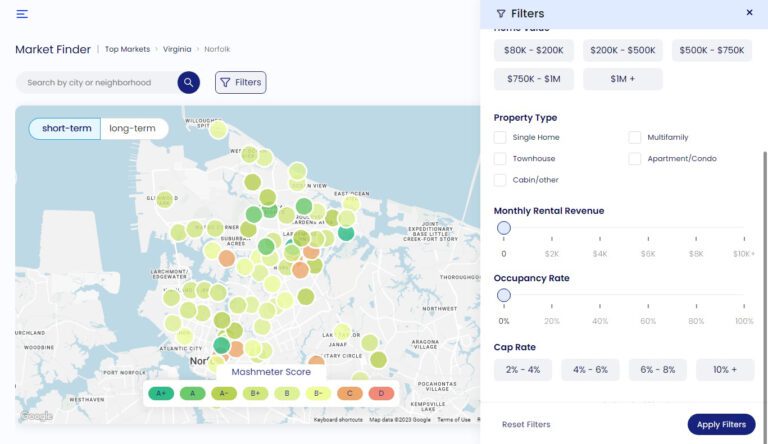
Mashvisor’s Market Finder makes your search for profitable cities with no Airbnb regulation easier with its filters. You can customize your search to show only markets that meet your specific investment criteria and needs.
Search for the Top-Performing Airbnb Rentals With the Mashvisor Property Finder
The second step is finding potentially good investment properties for sale. Traditionally, this means going through newspaper listings, talking to agents, and networking with other investors. Airbnb investors can use the power of AI to find provenly successful opportunities with the Mashvisor Property Finder.
This tool allows you to choose the following:
- City
- Budget
- Property type
- Number of bedrooms
- Number of bathrooms
Afterward, it gives you a list of the most profitable short term rental properties for sale that meet these requirements. These listings are ordered from the highest cash on cash return down to give you instant access to the best deals. All these properties are currently available for sale.
Analyze the Investment Potential of Listings for Sale With the Mashvisor Airbnb Calculator
Last but not least, before buying a vacation rental property, you need to perform rental property analysis. It means calculating the exact rental income, expenses, cash flow, occupancy rate, and return on investment that you can expect. You can do that in the most efficient way with the Mashvisor Airbnb Calculator.
Airbnb Rental Calculator
Bedrooms
Bathrooms
Bedrooms
Bathrooms
This calculator forecasts the performance of any residential property on Airbnb based on the results obtained by similar listings in the same area, known as rental comps. Thanks to the analysis conducted by the Mashvisor Airbnb profit calculator, you can know exactly how much money you can make from a property in any of the cities that allow Airbnb.
Investing in Cities With No Airbnb Regulation: The Bottom Line
The first step towards a good Airbnb investment is choosing a market where renting a property for less than 30 days is legal and relatively unrestricted. In this article, we’ve provided you with a list of the 20 US cities that face the least short term rental regulations and restrictions.
But that’s just half the battle. Next, you need to find profitable opportunities and confirm their potential as vacation rental properties. To do this in the most efficient way, you need access to the Mashvisor real estate investing platform. The tools available on it will help you turn three months of research and analysis into 15 minutes.
To learn more about how the Mashvisor tools can help you make profitable real estate investments in the cities with no Airbnb legal issues, sign up for a 7-day free trial now, followed by 15% off for life.
